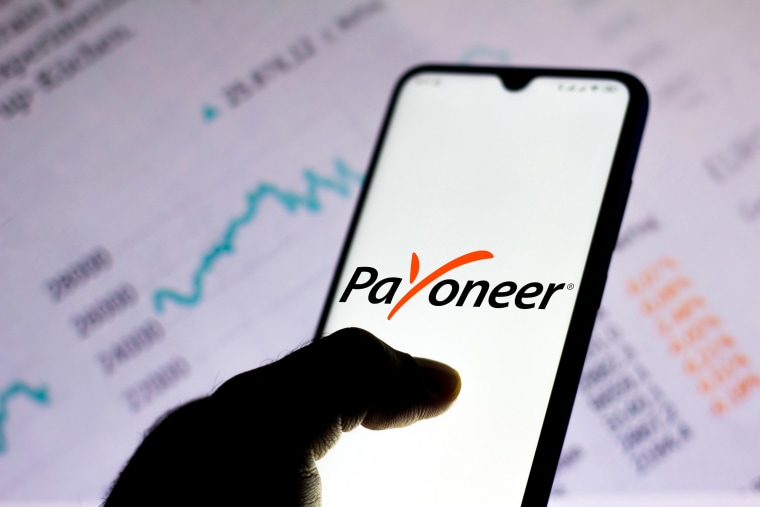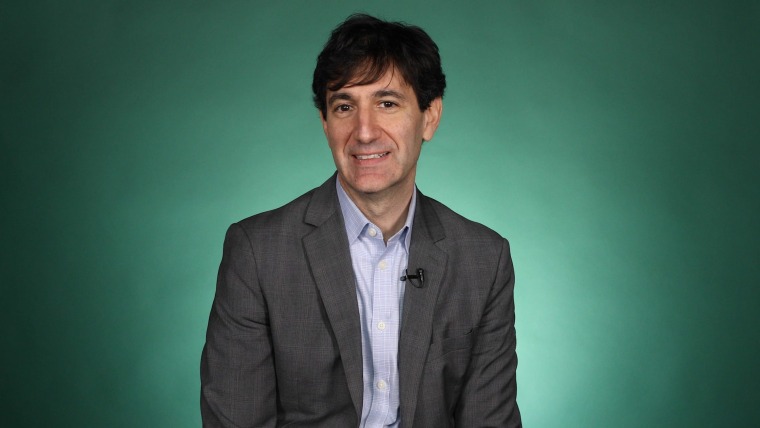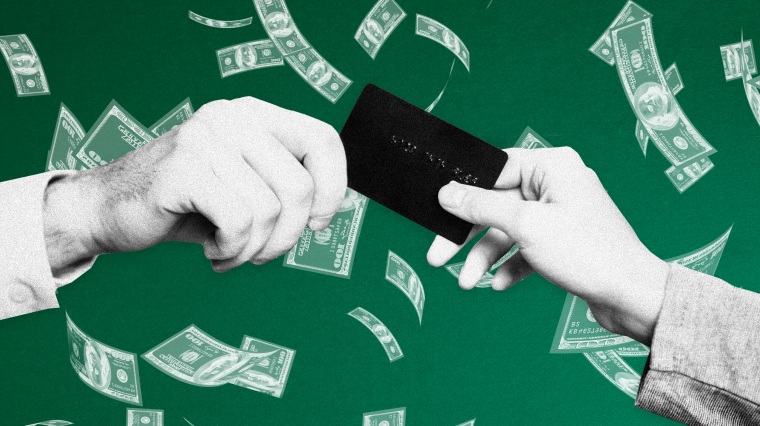The collapse of Choice Bank, an obscure entity in Belize, went largely unnoticed in 2018.
But Americans were among the uninsured depositors filing claims in its failure, totaling $100 million. Some said they were startled to learn that their money was trapped in a small bank in Central America. They thought they were doing business with a U.S.-based company called Payoneer.
"Losing out on money that I'm not expecting to lose is very upsetting, even still," said Mara O'Halloran, a Pennsylvania mother of two who said she is out thousands of dollars as a Choice Bank depositor.
Not everyone was shocked by the Choice Bank collapse. Years before, an array of banks were raising questions to regulators about its practices. In 2014, for example, Bank of America characterized Choice Bank as "an issuer of prepaid cards for program managers with inherently high risk."
That and other warnings about Choice Bank emerged in a cache of 2,100 secret suspicious activity reports filed with the Treasury Department's Financial Crimes Enforcement Network, known as FinCEN, from 2011 to 2017.
The leaked documents are part of the FinCEN Files, a collaborative project with the International Consortium of Investigative Journalists, BuzzFeed, NBC News and more than 400 other journalists around the world. The project examined a cache of suspicious activity reports filed by banks with FinCEN, as well as other investigative documents. The documents were obtained by BuzzFeed.
The reports citing Choice Bank provide a rare glimpse into problems that can arise for customers of so-called financial technology companies partnering with risky offshore banks.
The failure of Choice Bank also shows the potential dark side of prepaid cards, which are used by millions of people globally and whose total card spending exceeded $7 trillion in 2018. The cards ease money transfers across borders and enhance global commerce, their advocates say.
But the anonymity allowed by the cards increases their appeal to money launderers and drug traffickers, analysts contend. People can deposit funds gained through illicit activities in loosely regulated offshore banks and then use prepaid cards obtained from companies partnering with the banks to spend the money in the U.S.
'Suspicious activity reports'
Financial institutions conducting business in the U.S. must file suspicious activity reports to FinCEN, an agency that fights money laundering, terrorist funding and other financial crimes. In confidential reports, the institutions detail — and often rescind — transactions among clients or other banks they suspect are problematic.
The reports, known as SARs, aren't by themselves proof of wrongdoing. The information is raw and unverified, which is why regulators keep them secret. The vast majority of SARs don't result in any action by regulators, experts say. FinCEN uses them to pursue investigations.
A 2015 report filed by Deutsche Bank, for example, noted that Choice Bank "appears to facilitate wire activity for secretive clients operating in the world of offshore financing which presents a higher risk for potential money laundering activities." NBC News couldn't determine whether FinCEN investigated the Choice Bank reports.
Many Choice Bank customers, like Mara O'Halloran, came to it by way of a startup called Payoneer, a company that allows customers to send and receive money internationally. New York-based Payoneer, which says it operates in 200 countries and serves 4 million people, was a program manager for prepaid Mastercards issued by Choice Bank; the cards let customers receive payments and withdraw their money at ATMs worldwide.

Like many other Payoneer customers, O'Halloran liked the convenience of the prepaid card, which worked like an electronic wallet. "A bank account without the hassle," she said. The customer puts money in the bank and the bank puts money on the card, which the holder can use to make purchases, transfer money or get cash from ATMs.
It also meant O'Halloran didn't have to deal with a traditional U.S.-based bank. She works in the adult entertainment industry as a webcam model, and traditional banks have sometimes shut down accounts of people they believe are in the industry as "high risk."
But the arrangement changed in late 2016 for some Payoneer customers. Under the change, Payoneer shifted from being a fiduciary to the customers, meaning it had to put their interests first, to being a service provider to Choice Bank. That meant customers would have to ask Belize-based Choice Bank to solve any problems. When Choice Bank failed in 2018, customers had to try to get their money back from the liquidator appointed by the central bank of Belize rather than get help from Payoneer.
Two and a half years after the Choice Bank failure, its liquidator is making final distributions to depositors and creditors — roughly 80 cents on the dollar, according to an August report. But some depositors said they haven't filed claims because they didn't know how.
In online posts and in correspondence with NBC News, some former Payoneer customers described having had as much as $50,000 in the bank when it failed.
Payoneer was also hurt in the failure, although it didn't say how much money it lost. Its spokesman declined to say whether Payoneer officials felt responsible for the losses incurred by its former customers.
Offshore banks and 'fintech' companies
Choice Bank opened its doors in 2007 in Belize City as an international bank, meaning only foreigners could open accounts there. Those kinds of "offshore" entities can be less scrupulous than domestic institutions about scrutinizing whom they do business with, industry sources said.
Choice Bank had close ties to Payoneer. Payoneer's founder became a shareholder in the bank in 2010, documents show. While that stake was sold two years later, according to a person briefed about the matter, Payoneer continued to do business with Choice Bank until it failed.
In recent years, companies like Payoneer — part of a new and burgeoning sector called financial technology, or "fintech" — have won over millions of customers by offering efficiency and savings in the global financial arena.
According to a 2019 report from the Conference of State Bank Supervisors, fintechs account for 55 percent of the $1.4 billion in transactions conducted by all "money services" businesses, meaning everything from PayPal to grocery store check cashing firms.
But fintech companies aren't subject to the stringent rules that apply to banks. An International Monetary Fund report in July said the regulatory gulf poses risks to financial stability, citing "possible disruption of traditional business models, and the interconnectedness of traditional financial institutions with lightly supervised fintech companies."
The industry's promise took a beating this summer in the flameout of Wirecard, a German bank and fintech darling that filed for insolvency amid accusations of accounting fraud and fabrication of $2 billion in assets.
Download the NBC News app for breaking news and alerts
Banks, however, had begun raising questions about Wirecard years earlier, the FinCEN files show. A 2014 report about Wirecard transactions filed by Bank of New York Mellon said it had "confirmed that most of the wires represented payments to online casinos, pornography websites, and billing payment processing companies." Bank of New York Mellon also noted that it had closed an account Wirecard had at the bank in 2009 because of problematic transactions.
Seth Eisen, a Mastercard spokesman, declined to comment extensively about specific customers, including Wirecard and Choice Bank. But he said in a statement: "Mastercard maintains a formal and rigorous rules enforcement process. We actively monitor our network for violations of law and non-compliance with our rules, including through the use of advanced artificial intelligence technology."
Many fintech companies, including Payoneer, have compliance departments and invest in oversight systems to protect themselves and their clients.
A spokesman for Payoneer said its compliance practices are vigorous.
"Payoneer's compliance program meets the highest industry standards and is audited regularly by leading global auditors and financial regulators in multiple jurisdictions," he said in a statement. "Payoneer has never been found to have violated any of its anti-money laundering obligations by FinCEN or any regulator or authority anywhere in the world. Any implication to the contrary is misleading and mischaracterizes the facts."
In 2018, the IRS concluded an audit of Payoneer's anti-money laundering compliance program and identified no violations. The audit covered five months of 2016.
Other fintech participants, as disrupters of an established industry, tend to view government regulation as a hindrance. In a 2017 global survey of such companies, nearly half identified anti-money laundering laws and know-your-customer rules — designed to assess compliance risks — as a "barrier to innovation."
"We need to make sure everybody involved in fintech networks understands their role in the chain, who they are meant to be protecting and what those roles and responsibilities are," said Robert Evans, co-founder of FINTRAIL, which consults with companies in anti-financial crime compliance. "I'm not 100 percent sure the regulators have the capabilities and knowledge to understand the business models well enough to understand where this risk is."
A regulator with 'minimal impact on compliance'
Every year, regulators and banks monitor trillions of dollars in international money flows on the lookout for criminal activities — which includes the review of over 2 million suspicious activity reports filed annually.
Most come from regulated banks, according to FinCEN data. But SARs can cover an array of operations, including money services businesses; almost 24,000 were registered with FinCEN as of Aug. 28.
Unlike banks, which answer to federal regulators like the Office of the Comptroller of the Currency, the Federal Reserve Board and the Federal Deposit Insurance Corporation, money service businesses are examined by the IRS.
The IRS' scrutiny of money service businesses lacked the teeth to promote good behavior, a report by the Treasury's inspector general for tax administration found in September 2018. It said the IRS' Bank Secrecy Act program "has minimal impact on compliance" because penalties for violations aren't assessed.
The IRS disagreed with the finding.
Staffing at the IRS was a problem, according to the report, which noted that it had only six policy analysts responsible for reviewing Bank Secrecy Act referrals from the IRS to FinCEN.
'Secretive clients'
Payoneer entered the fintech scene in 2005, before the term was a Silicon Valley buzzword. It was built on a simple idea: making payments across borders easier and cheaper.
Prepaid cards are a big part of Payoneer's business. Scott Galit, Payoneer's CEO, was previously global head of the prepaid card unit at Mastercard. Payoneer, a private company, was valued above $1 billion last year, according to news reports.

The company's relationship with Choice Bank appears to stem from the 2010 ownership stake taken in the bank by Payoneer's founder, Yuval Tal, an Israeli entrepreneur. Tal declined to comment through a spokesman.
Before it failed, Choice Bank had more than 3,000 international corporate accounts and over 300,000 of its own Mastercards circulating, according to the bank's liquidator. Fees for prepaid cards like Payoneer's made up the bulk of Choice Bank's revenue, financial reports show.
An unidentified Choice Bank founder interviewed in the book "Business and Retirement Guide to Belize" characterized the bank as prudent, saying: "We do as much or more due diligence as a North American bank."
Suspicious activity reports indicate otherwise.
"It is unclear if Choice Bank Ltd is aware of the true identity of their customers," said a 2014 report filed by Bank of America, referring to the know-your-customer rule that banks must follow.
Sometimes the reports about Choice Bank referred to Payoneer; the 2014 report from Bank of America cited $12.83 million in suspicious transfers sent to Choice Bank by Payoneer, saying they "show an unusual pattern of potential deceptions involving far-flung corporate entities, anonymous shell companies, and secretive offshore finance."
Wells Fargo cited almost $33 million in suspicious wire transfers between Choice Bank and Payoneer from October 2016 to March 2017, noting "the inexplicable nature of the outgoing wires, for which the original sources of funding were not known."
Suspicious activity reports referring to Payoneer, or a wholly owned U.K. subsidiary called Borderless Commerce, exceed $800 million in transactions over the six-year period. They flag transactions for three main reasons: They occurred in high-risk jurisdictions, the banks couldn't identify the sources of funds involved, or the transactions appeared to involve the adult entertainment industry, which is viewed as high-risk.
Most of the Payoneer transactions occurred from 2014 to 2016. In mid-2015, for example, Deutsche Bank highlighted $38 million in Payoneer transactions because the bank was "unable to confirm the commercial purpose of any of these transactions through independent research."
From April 2014 to February 2015, Citibank flagged $20.6 million in payments Payoneer received from an "online adult video streaming site linked in news reports to human trafficking."
Asked to comment on the record about these specific reports, Payoneer's spokesman declined.
None of the reports are evidence of wrongdoing. But they raise questions about potential missed flags regarding risks at Choice Bank.
William Lindo, a lawyer at Glenn D. Godfrey & Co. in Belize, represents depositors who are seeking the return of their money. He said it had been well-known that Choice Bank had many customers in the adult entertainment business. He said that while investigating the failure for his clients, he learned that Mastercard told Choice Bank to reduce its involvement with the industry in late 2015 or early 2016.
"Choice Bank was known as having problems with the regulators well before the failure," Lindo said.
Choice Bank delegated significant activities to Payoneer during its relationship, according to a 2018 report filed by Choice Bank's liquidator. The bank let Payoneer "conduct financial transactions, on Choice Bank's behalf, including wire transfers of funds, without Choice Bank's prior approval of each transaction," the liquidator said.
Payoneer's spokesman didn't respond to the finding on the record.
In late 2016, Payoneer changed its setup with Choice Bank; it offered customers tied to the adult entertainment business something called FirstChoice Pay, a new but similar program of prepaid Mastercards issued by Choice Bank.
"In 2016, Payoneer made a business decision to stop acting as a program manager for high risk businesses," a company spokesperson wrote in an email. "All of those companies were given the option to terminate their contract or transition to Choice Bank's FirstChoice Pay program, in which each company established a direct contractual relationship with Choice Bank, which had all fiduciary responsibility for client funds and contractual obligations. Payoneer was a vendor to Choice Bank, providing technology and services to the program."
With Payoneer now solely a service provider to those companies and their customers, Choice Bank took on the fiduciary responsibility to them. When the bank failed, the former Payoneer customers had to deal with the Choice Bank liquidator to get their money.
Several Payoneer users said they never signed contracts memorializing the shift to FirstChoice Pay.
An email provided by one indicated that by continuing to do business under the new arrangement, the user was agreeing to its updated terms, which could be viewed by clicking on a link.
Some users said they barely noticed the change, because the website was virtually identical, only with a FirstChoice Pay logo.
"It was presented as a rebrand," said Corii Siren, a webcam model who said she began using Payoneer in 2011. "Like, 'Hey we're not called Payoneer anymore; we're FirstChoice Pay.' I was very trusting, which was probably naive of me. But they were super legit, and they made you feel really comfortable."
'FirstChoice Pay in place of Payoneer'
Emails shared with NBC News indicate that Payoneer's corporate clients may have gotten more information about the shift to FirstChoice Pay than individual customers did.
A December 2016 email from Payoneer to a corporate client reviewed by NBC News announced that "Payoneer has teamed up with Choice Bank Limited to bring you FirstChoice Pay" and included a request for written consent for the assignment of the agreement from Payoneer to Choice Bank. The email described Choice Bank as "the issuing bank behind our product for many years" and the "largest corporate issuer of prepaid Mastercards."
It noted that "once the transition is completed, all client communications, the MasterCard® Prepaid cards and the 'My Account' user portal will be branded FirstChoice Pay in place of Payoneer."
Several former Payoneer users said they didn't get that level of detail ahead of the switch to FirstChoice Pay. One shared a February 2017 email in which Payoneer said, "We are excited to announce that, from today ... your account is transitioned to Firstchoice Pay." It said that "all future payments will be processed by Choice Bank and transferred to your existing prepaid Mastercard." The email didn't attach a consent form to sign.
In April 2018, Mastercard suspended Choice Bank's license to offer prepaid cards. "While we had worked with the bank over the years to ensure their compliance with rules that apply to the use of our brand and network," the Mastercard spokesman said in a statement, "it was through our onsite review program that we identified additional areas that led to their suspension and ultimate termination of their license."
That was the beginning of the end. The bank immediately barred depositors from withdrawing their money, documents on the liquidator's website show. Two months later, the central bank revoked Choice Bank's license and appointed a liquidator.
As word of the Choice Bank failure spread, distressed adult entertainment workers began contacting Payoneer for help, according to a former employee and hundreds of posts on online forums. Most often, they were directed to FirstChoice Pay's website, which they say eventually stopped responding.
Sorting out the insolvency and who should receive distributions in it has taken more than two years. In August, the liquidator said it would begin making final distributions.



